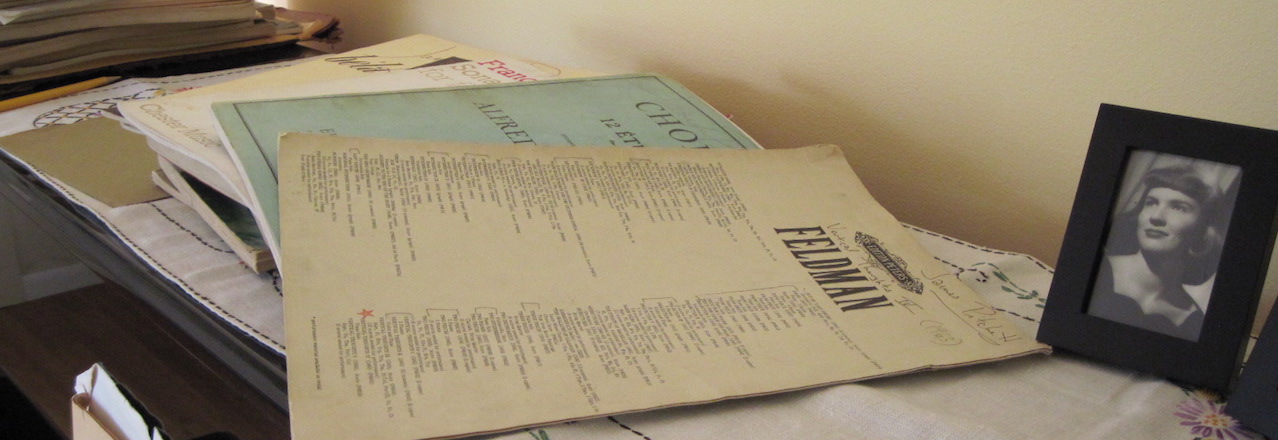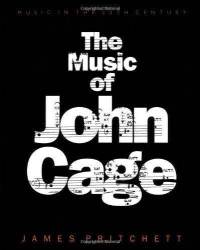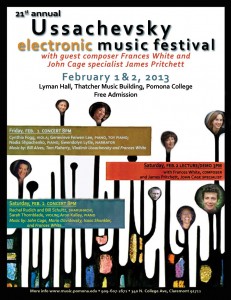“John Cage was a composer: this is the premise from which everything in this book follows.”
Twenty years ago I opened my book on the music of John Cage with this strong statement. During the extended Cage centennial celebration of 2012 (still going on in some places) I have had this line quoted back to me a few times. At the time I wrote it, it needed to be said and to be said forcefully. For many, the jury was still out about whether Cage’s music was even the point of his work. Wasn’t he the guy who made that avant-garde gesture in which a pianist just sat in front of a piano without doing anything? Someone recently described 4′ 33″ to me not as a musical composition but as an “axiom”, a statement that became a given from which the works of other artists flowed. For him, this was Cage’s importance.
But for me what was interesting and engaging was always Cage’s music and I couldn’t figure out why people had such a hard time calling him a composer. I had no problem with people who called him a bad composer, but to deny that he was someone who wrote music seemed insane to me. The more I studied his life and work, the more obvious his composer nature became. In the introduction to my book, I cite the most self-evident of these distinguishing signs: that he called himself a composer, that he studied composition, that he wrote hundreds of compositions, that he had regular performances, recordings, and commissions.
There were other field marks by which I identified Cage as a composer. A composer wants nothing more than to create new works out of sound: to sit in the acoustic puddle of music and make mud pies. A composer is delighted by hearing new things, most especially the ones she creates herself. A composer is always most interested in the current piece she is working on, not the one she wrote ten years ago (or last year, or last month, or last week, even). A composer gets lost in work, losing track of time, easily spending hours in front of the piano, the writing desk, or the computer. A composer makes decisions about a work based on what will make the effect stronger, the intent clearer. Even while focused on the work at hand, a composer, at a certain point, starts looking forward to the next piece that has come up in her imagination. A composer hates copying (usually). A composer is disappointed—crushed at times—by bad performances by indifferent or hostile performers. A composer yearns for the beautiful and the true and will work hard to bring it into being in sound.
John Cage had all these qualities (except, perhaps, for the dislike of copying, which I will grant you varies from composer to composer). These were the things that I kept seeing in his accounts of his life and in his daily living that I saw peripherally as I sat at his table poring over old manuscripts. And therefore I knew him to be a composer, and I felt it necessary to proclaim that so strongly at the start of my book.
Technically, however, the first line of my book was not the avowal of Cage-as-composer, it was the dedication: “For fw, the other subject of this book.” It is easy enough to identify “fw” as my wife, Frances White (“fw” was her computer login at the Brooklyn College computer music studio, and I geekily called her that at times). But how is she the other subject of this book? Simply by being my model for what a composer is. I learned those telltale characteristics from close daily observation, from listening to the ups and downs of Frances’ work. Frances is my model of a composer and will be forever. I realized at some point that I was to some degree modeling Cage after Frances, and so she became the other, hidden subject of the book, hinted at in the dedication. Like an artist in love with his model, every composer portrait I paint will likely include aspects of her shape, style, and beauty.
The above “valentine out of season” comes to mind as I prepare my notes for a talk that Frances and I are giving at Pomona College shortly. We are the two-headed guest of the Ussachevsky Festival of electronic music there, and we will be giving a tag-team lecture-demonstration on Saturday, 2 February at 3:00pm. We’ve given it the title “Her work, his work, our work (+ John Cage)”, and it will include discussions of various things we’ve done solo or jointly over the years, most of which have some connection to Cage. We both looked for things that had John’s mark on them, but what has been particularly fun is to find that all the things, even our solo works, are collaborations in some way. I count my book among them.
Postscript: While searching for the above graphic of my book, I came across my book in this post at the CoverSpy blog, which reports on books seen on the streets, buses, parks, and bars of New York City. They also describe the person reading it. It made me happy to imagine my book being read, after twenty years, by a male teen on the #1 train with “Juilliard tote bag, flip flops, earbuds.” (well, I do wish he’d lose the earbuds …)


